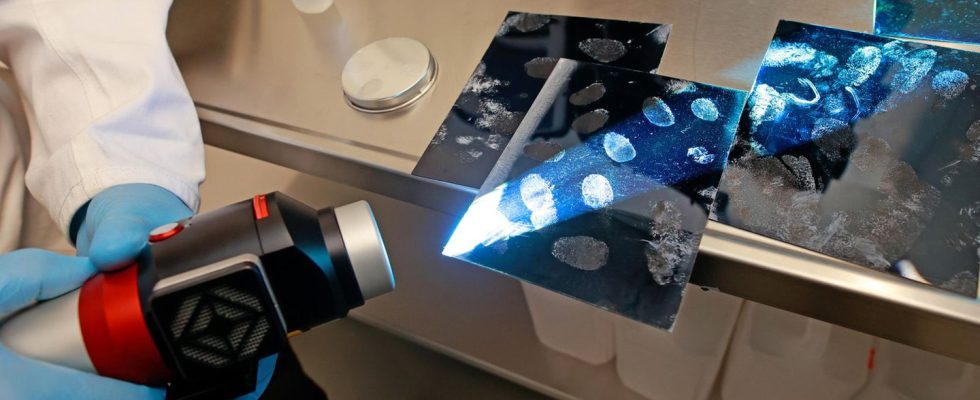Cold case
After 33 years: Police investigate the robbery and murder of a hairdresser in Mühlheim
Access to an international database for fingerprints brought the breakthrough in the Mühlheim cold case (archive photo)
© Matthias Bein / DPA
There is no statute of limitations on murder: 33 years after a robbery-murder in Mühlheim, a hit in a fingerprint database leads to a suspect. He is said to have strangled a hairdresser in his apartment – out of greed.
The investigation into the case is ongoing, emphasized the investigating public prosecutor from Duisburg, Martin Mende, on Thursday. They are currently in the process of shedding light on the suspect’s surroundings in order to find out as much as possible about the crime, motive and whereabouts of the loot.
Murder in Mühlheim: Investigators assume greed was the motive
The police and public prosecutor’s office have so far assumed that the murder was motivated by greed: on January 19, 1991, the 63-year-old master hairdresser was found strangled in his apartment. Employees had become concerned after he failed to show up at his salon that Saturday. The police found his apartment ransacked; two valuable watches and gold coins worth several thousand marks were missing. Before the crime, the victim had been browsing bars in Mülheim until the early hours of the morning. Despite intensive investigations, no suspect was identified at the time.
Traces from the crime scene – such as fingerprints or DNA – had not helped investigators for many years. The Essen investigators then compared a fingerprint found at the time with international databases that are now available – and finally landed a hit in Poland. The suspect had previously been investigated there in connection with a burglary. After his arrest, the DNA found at the crime scene was compared with that of the Mülheim man and also matched, as the responsible off-duty investigative inspector, Michael Detscher, explained.
Retired detectives support cold case investigations
For several years now, retired criminal investigators have been supporting active investigators in solving such “cold cases”. They often rely on the current possibilities of genetic analysis and public relations work. Across North Rhine-Westphalia, the State Criminal Police Office assumes there are several hundred such unsolved crime cases in which there is still a chance of tracking down the perpetrators. The Essen investigative group for “cold cases” alone – consisting of three active and three retired officers who have been recalled from retirement – is trying to solve more than 52 cases.


